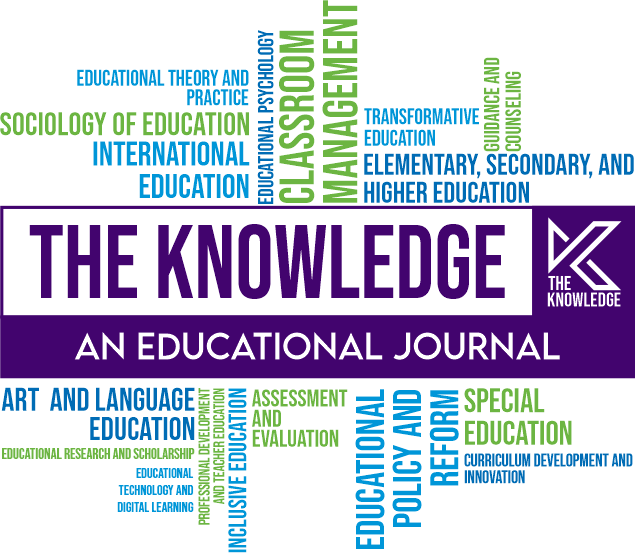The Role of Educational Leaders in Navigating AI Integration: Implications for Creativity and Critical Thinking
DOI:
https://doi.org/10.55737/tk/2k25c.43073Keywords:
Educational Leadership, Artificial Intelligence, Higher Education, Creativity, Critical Thinking, Ethics in Artificial Intelligence, Leadership Models, Digital PedagogyAbstract
The fast rate of growth of Artificial Intelligence (AI) in higher education has led to the disruption of all the normal practices within the academic sphere, and this leads to both challenges and opportunities among the institution's leadership. This review paper critically examines the question of the successful AI integration management by educational leaders and the preservation of crucial cognitive skills like creativity and critical thinking. Based on the existing leadership paradigms, such as the Transformational, Distributed, and the Technology-Organisation-Environment (TOE) framework, and new directions, such as Ethical Adaptive Leadership, the article integrates theoretical and empirical studies in order to consider the applied aspects of leadership, AI, and student cognition. It outlines some of the critical issues concerning the leaders, such as ethical issues, excessive automation, institutional readiness, and the threat of reduced student agency. The results reveal the necessity of implementing strategic leadership techniques supportive of responsible AI use, constant faculty enrichment, and balanced pedagogical strategies. The review ends with the conclusion that educational leaders need to take on a transformational and ethically-informed role to see that AI technologies improve rather than derail the intellectual and creative growth of students in the era of digitalization.
References
Bass, B. M., & Riggio, R. E. (2006). Transformational Leadership (2nd ed.). Psychology Press. https://doi.org/10.4324/9781410617095
Charles, T., & Papadaki, M. (2025). Ethical Leadership in Technology Integration and Digital Education. In Diverse Leadership Perspectives in Education: From K-12 to Higher Education (pp. 437-454). IGI Global Scientific Publishing.
Crompton, H., & Burke, D. (2023). Artificial intelligence in higher education: the state of the field. International Journal of Educational Technology in Higher Education, 20(1). https://doi.org/10.1186/s41239-023-00392-8
Fullan, M. (2001). The New Meaning of Educational Change. New York: Teachers College Press.
Göksoy, S. (2015). Distributed leadership in educational institutions. Journal of education and training studies, 3(4), 110-118. http://dx.doi.org/10.11114/jets.v3i4.851
Holmes, W., Bialik, M., & Fadel, C. (2019). Artificial intelligence in education promises and implications for teaching and learning. Center for Curriculum Redesign.
Luckin, R., Holmes, W., Griffiths, M., & Forcier, L. B. (2016). Intelligence Unleashed: An Argument for AI in Education. Pearson Education.
Selwyn, N. (2019). Should robots replace teachers?: AI and the future of education. John Wiley & Sons.
Tornatzky, L. G., & Fleischer, M. (1990). The processes of technological innovation. Lexington Books.
UNESCO. (2025). AI in Higher Education: Opportunities and Challenges for Sustainable Innovation. Paris: United Nations Educational, Scientific and Cultural Organization.
Uren, V., & Edwards, J. S. (2023). Technology readiness and the organizational journey towards AI adoption: An empirical study. International Journal of Information Management, 68(102588), 102588. https://doi.org/10.1016/j.ijinfomgt.2022.102588
Wang, Y. (2023). Synthetic realities in the digital age: Navigating the opportunities and challenges of ai-generated content. Authorea Preprints.
Yang, Y. (2025). Constructing a Human-Centric Creativity Framework for Teacher Role Transformation under AI. AI in Human Sciences, 1(1), 103-134. https://polaris-aihs.com/journal/index.php/aihs/article/view/8
Zawacki-Richter, O., Marín, V. I., Bond, M., & Gouverneur, F. (2019). Systematic review of research on artificial intelligence applications in higher education–where are the educators?. International journal of educational technology in higher education, 16(1), 1-27. https://doi.org/10.1186/s41239-019-0171-0
Zhang, J., & Jiang, Z. (2025). Technology and Innovation: Transforming Educational Leadership. In Cultivating Inclusive Educational Leadership Ecosystems: Women Trailblazers and the Path Forward (pp. 357-382). IGI Global Scientific Publishing.
Downloads
Published
Issue
Section
License
Copyright (c) 2025 Copyright in the THE KNOWLEDGE is retained by the author(s). Authors also grant any third party the right to use the article freely as long as its integrity is maintained and its original authors, citation details and publisher are identified.
This work is licensed under a Creative Commons Attribution-NonCommercial 4.0 International License.







